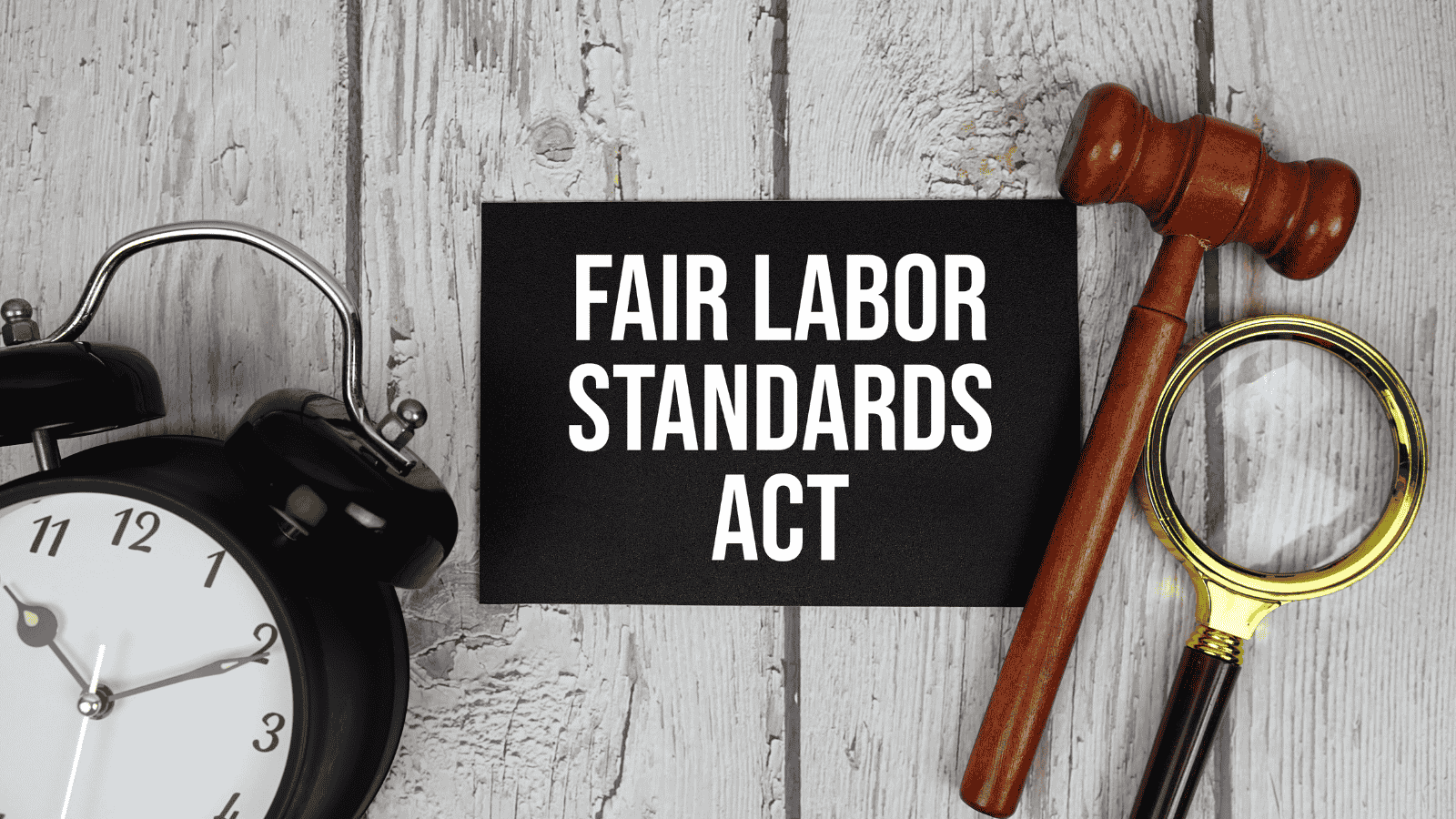Understanding Federal Ruling on White Collar Overtime Exemptions
Understanding the Federal Court’s Decision on White Collar Overtime Exemptions On November 15, 2024, the U.S. District Court for the Eastern District...
Discover our wide range of courses designed to help you maintain compliance with Prevailing Wage and other labor laws
Join our upcoming events to ensure seamless compliance with Prevailing Wage and other essential labor laws
Discover how our services can assist you and your company in staying compliant with Prevailing Wage.
Explore the resources we offer, providing quick guidance on a wide range of topics
6 min read
Hailey Soupiset : May 21, 2024 11:19 AM

|
The Department of Labor has published its Final Rule updating the salary threshold requirements for its Executive, Administrative and Professional Exemptions, under the Fair Labor Standards Act, as well as the threshold regarding Highly Compensated Employees (HCE). FLSA Exemptions Here’s a brief overview of the three FLSA exemptions, which we cover in-depth during our trainings. Understanding the distinctions between these exemptions is crucial for both employers and employees to ensure compliance with the law.
In summary, while all three exemptions—executive, administrative, and professional—provide exceptions to certain provisions of the FLSA, they each have distinct criteria that must be met for an employee to qualify. Employers must carefully evaluate the job duties and responsibilities of their employees to ensure proper classification, as misclassification can lead to significant legal and financial consequences. Similarly, employees should be aware of their rights under the FLSA and ensure that they are fairly compensated in accordance with the law.
Highly Compensated Employee (HCE) Criteria Meanwhile, a Highly Compensated Employee (HCE) is a classification that pertains to certain employees who receive compensation at a higher level than the standard salary threshold for exemption from overtime pay requirements. The concept of Highly Compensated Employees was introduced by the DOL to streamline and simplify the exemption criteria for certain white-collar employees who may not meet the standard duties test for exemption but receive high compensation. A Highly Compensated Employee, as defined by the FLSA, is an employee who meets specific criteria related to compensation and duties. The primary criterion for classification as an HCE is the total annual compensation received by the employee. As of the most recent update to FLSA regulations, to qualify as an HCE, an employee must:
The compensation threshold for HCEs is significantly higher than the standard salary level required for exemption under the FLSA. This threshold is set at a level intended to encompass employees who, due to their high compensation, are less likely to be subject to the potential abuses associated with misclassification and are more likely to perform executive, administrative, or professional duties. In addition to meeting the compensation threshold, HCEs must also perform office or non-manual work and regularly perform one or more of the exempt duties associated with executive, administrative, or professional roles. While the duties test for HCEs is less stringent than that for other exempt employees, it still requires that the employee's duties involve a level of responsibility and discretion consistent with the exempt status under the FLSA. The classification of Highly Compensated Employees serves several purposes within the framework of the FLSA. Firstly, it provides a simplified exemption pathway for certain employees whose high level of compensation indicates that they are less likely to be vulnerable to the potential exploitation that the FLSA seeks to prevent. Secondly, it acknowledges that employees who earn significantly higher salaries may inherently perform duties that align with those of exempt executive, administrative, or professional employees, even if they do not meet the strict duties test criteria.
New DOL Final Rule: Salary Threshold Requirements The salary thresholds for workers fitting these designations will be increased in phases, beginning July 1st, 2024, with a second increase coming six months later on January 1st, 2025. The Department has also introduced a mechanism to regularly update the salary threshold starting July 1st, 2027, and every three years after that.
Contractors will be notified at least 150 days before the date of a scheduled update to the salary levels. The Department will publish a notice in the Federal Register with the new earnings levels described above. As a result of these changes, contractors will have some decisions to make regarding their current employees’ classification. If employers want to continue to classify employees as exempt, they need to increase the salary level in order to remain in compliance and for the exemption to continue to apply. Otherwise, contractors should get ready to switch employees’ compensation to an hourly basis, which includes the responsibility to keep accurate records of hours worked, as well as the requirement to pay “time and a half” for any hours employees work over 40 in a week. Changes in the salary requirements for these positions reflect acknowledgement by the DOL that the labor force at large is facing increased financial strain, as living costs and inflation continue to affect workers. As a reminder, overtime (or “time and a half”) refers to any hours worked by covered non-exempt employees in excess of 40 hours in a workweek. While the standard workweek comprises 40 hours, any additional hours worked beyond this threshold qualify as overtime and are subject to special compensation rates as mandated by the FLSA. If you decide to reclassify a previously exempt employee as non-exempt, you may need to brush up on overtime calculations:
How Onsi Group Can Help: Navigating the nuances of the new final rule and its exemptions can be complex. Onsi Group offers tailored consulting services to ensure contractors understand their obligations under new regulations. From conducting comprehensive audits to providing training courses, Onsi Group offers a suite of solutions to support compliance and mitigate risks. Our in-person trainings are one of our most popular offerings, providing employers, HR staff, and workers the opportunity to dive deep and master concepts in FLSA, SCA, and DBA compliance. We also offer these courses online! Our services are uniquely tailored to your business’ ever-changing needs. If you are impacted by this updated final rule, either by increasing salaries for exempt employees or switching employees’ status to non-exempt, we would love to help you ensure compliance and achieve peace of mind. - Hailey Soupiset, Marketing Intern & Aaron Ramos, Senior Labor Compliance Officer |

Understanding the Federal Court’s Decision on White Collar Overtime Exemptions On November 15, 2024, the U.S. District Court for the Eastern District...

The Misconception: Salaried Employees and Overtime Compensation "That employee is paid on a salary; he doesn't get overtime." Every time I heard...

What is an FLSA Audit? Are you confident that your business is compliant with the Fair Labor Standards Act (FLSA)? If not, it's time to consider...